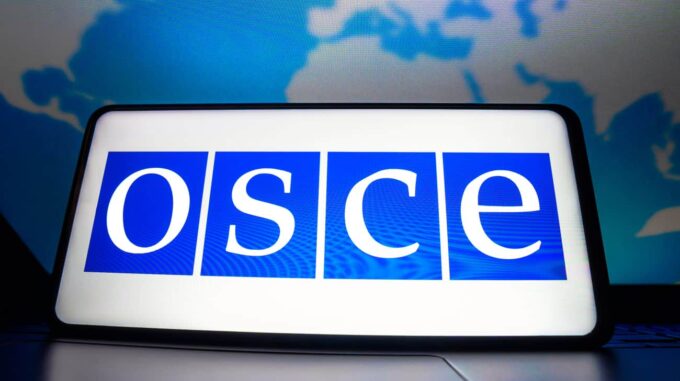The Organization for Security and Co-operation in Europe (OSCE) sharply condemned the cases of abuse and the fatal killing of Ukrainian journalist Viktoria Roshchina, which occurred on the territory of the Russian Federation

This tragedy has drawn international attention to the systemic human rights violations happening under Russian occupation and the uncontrolled detention of Ukrainian citizens. OSCE Representative on Freedom of the Media, Jan F. Bărul, expressed deep condemnation and outrage in his official statement regarding the abuse and inhumane treatment documented by international journalists as part of an investigation carried out by 45 specialists from the "Forbidden Stories" coalition. The group of researchers investigated instances of torture, abuse, and brutal acts against the Ukrainian journalist who died during unlawful detention in Russia without official charges or a trial. Bărul emphasized that such actions violate fundamental provisions of international law, particularly Articles 7 and 9 of the International Covenant on Civil and Political Rights, as well as the UN Convention Against Torture. Furthermore, he highlighted that, according to international humanitarian norms, journalists covering conflicts and operating in zones of military action have the status of civilians, protected by relevant legal documents. Torture, cruel treatment, and unlawful detention without trial are violations that grossly violate the principles of humanitarian law and contravene the Geneva Conventions, which regulate the rights of prisoners and civilians during wartime. In his statement, Jan F. Bărul called on the international community to strengthen efforts to hold Russia accountable for these violations and urged unconditional adherence to international legal standards. The reaction from Ukrainian diplomats was swift. Ukraine’s Foreign Minister, Dmytro Kuleba, expressed gratitude to the OSCE for its clear and resolute position on the situation, emphasizing that systemic torture, abuse, and disregard for international standards by Russia require strict and unified international action. He underscored that crimes committed against Ukraine and its citizens must be investigated and brought to justice in accordance with international law. Viktoria Roshchina’s death occurred after her prolonged stay in occupied territories, including Russia, where she engaged in journalistic work and reported on real conditions for the global audience. Her disappearance and subsequent death in August 2023 shocked both Ukrainian and international communities. Initially, Russia did not officially acknowledge her detention, but by May 2024, the country admitted for the first time that she had been detained. Reports about her condition and circumstances of detention appeared at that time. On October 10, Petr Yatsenko, head of the press service of the coordination headquarters for humanitarian aid, confirmed the tragic news during a televised marathon—Viktoria Roshchina died in Russian captivity. Soon after, this information was also confirmed by the Ukrainian Parliamentary Ombudsman for Human Rights, Dmytro Lubinets, who stated that the civic activist and journalist lost her life under torture and abuse. International reactions to this injustice intensified. In April 2025, representatives of the European Commission stated that Viktoria’s death in Russian captivity is further evidence of the cruelty and impunity practiced by Russian authorities. They also emphasized that the events surrounding her death serve as a stark reminder of the deadly threat faced by Ukrainians in occupied territories. Meanwhile, Ukrainian media and human rights organizations continue to remind the world of months-long torture, illegal detention, and the deprivation of rights of Ukrainian citizens by Russia, calling for increased pressure and more decisive actions by the international community to prevent such tragedies in the future. Viktoria Roshchina has become a symbol of courage and the fight for truth; her story and tragedy open the world’s eyes to the scale of crimes committed by occupying forces. Her narrative of love for freedom and pursuit of truth and justice has become one of the key themes in international discussions on human rights and adherence to international humanitarian law. Highlighting this tragedy, Ukrainians and the global community once again emphasize that accountability for Russia’s crimes lies with the entire international community, and that achieving justice is the duty of each of us.

